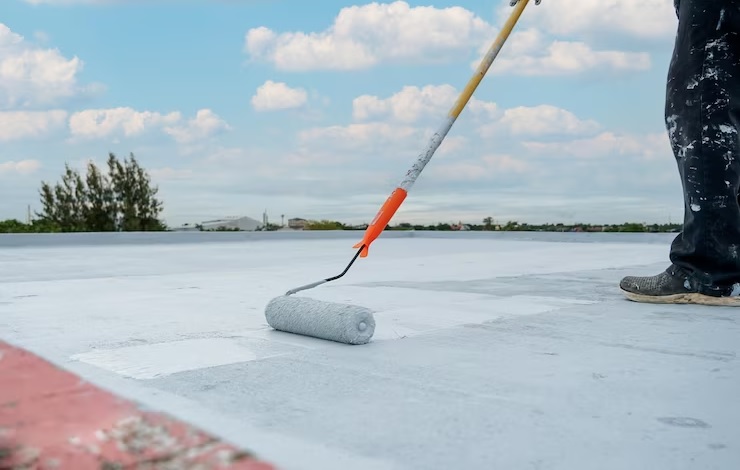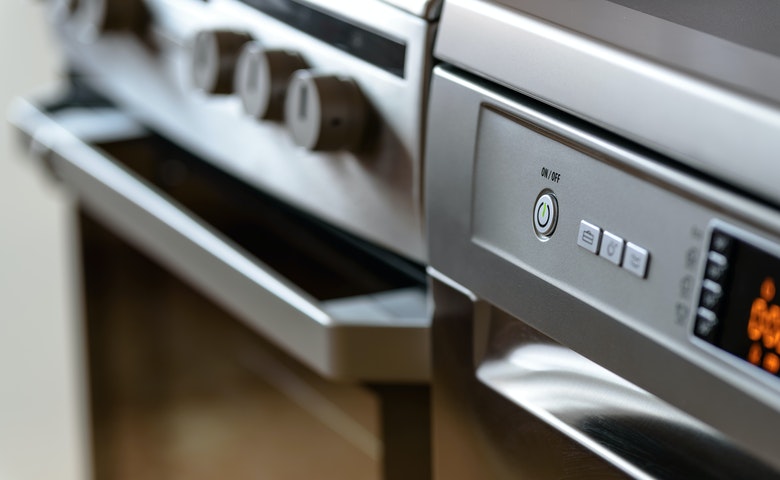Exploring the Significance of Remedial Waterproofing

Do you know what is remedial waterproofing? Also, how important is approaching a waterproofing consultant in Sydney at present? Well, water infiltration can cause significant damage to buildings, leading to structural issues, mold growth, and a host of other problems. Remedial waterproofing is a vital solution designed to address existing water-related issues and prevent further damage. Let us see in detail what is remedial waterproofing, its importance, and how it can protect structures from moisture-related challenges. Whether it’s repairing existing waterproofing systems or implementing new solutions, remedial waterproofing plays a crucial role in ensuring the longevity and integrity of buildings.
1. Understanding Remedial Waterproofing
Remedial waterproofing refers to the process of identifying and rectifying existing water intrusion issues in buildings. It involves diagnosing the root causes of water infiltration, developing appropriate solutions, and implementing them to eliminate the problem. The goal of remedial waterproofing is to address leaks, dampness, and moisture-related damage in structures effectively.
Remedial waterproofing encompasses a range of techniques and strategies, depending on the nature and severity of the water-related issues. It may involve repairing damaged waterproofing systems, applying sealants and coatings to prevent water penetration, installing drainage systems, and implementing other measures to mitigate moisture-related problems.
2. Identifying Water Infiltration Issues
Before undertaking remedial waterproofing, it is crucial to identify and assess the extent of water infiltration issues. Common signs of water intrusion include dampness, visible water stains, mold growth, peeling paint or wallpaper, musty odors, and deterioration of building materials. It is important to conduct a thorough inspection to pinpoint the sources and causes of water infiltration.
This process may involve visually examining the affected areas, using moisture meters to detect hidden dampness, conducting water tests, and employing other diagnostic techniques. Identifying the root causes of water infiltration is essential to develop an effective remedial waterproofing plan.
3. Developing an Effective Remedial Waterproofing Plan
Once the water infiltration issues are identified, a comprehensive remedial waterproofing plan can be developed. This plan should address the specific challenges of the structure and consider the underlying causes of the water-related problems. It may involve a combination of repair, maintenance, and installation strategies.
For instance, if the water intrusion is due to cracks in the foundation, the plan may include sealing the cracks with appropriate sealants or injecting epoxy resins to restore the integrity of the foundation. If inadequate drainage is the cause, the plan may involve installing or improving the existing drainage system to redirect water away from the structure.
The remedial waterproofing plan should be tailored to the specific needs of the building and consider factors such as the type of structure, climate conditions, and the severity of the water infiltration issues. It is advisable to consult with experienced waterproofing professionals to ensure the plan’s effectiveness and durability.
4. Implementing Remedial Waterproofing Solutions
The implementation phase of remedial waterproofing involves executing the planned solutions to address the identified water infiltration issues. This stage requires skilled professionals with expertise in waterproofing techniques and materials.
Depending on the nature of the problems, the implementation process may include repairing or replacing damaged waterproofing membranes, applying waterproof coatings or sealants, installing new drainage systems, improving ventilation, and reinforcing vulnerable areas prone to water penetration.
Skilled contractors will ensure that the remedial waterproofing solutions are implemented with precision and adhere to industry standards. They will use appropriate materials and techniques to create a durable and effective waterproofing system.
5. Benefits and Long-Term Protection
Remedial waterproofing offers numerous benefits and provides long-term protection for structures. By addressing water infiltration issues promptly and effectively, it prevents further damage to the building’s structure and interior spaces. It helps protect valuable assets and reduces the risk of costly repairs in the future.
A properly executed remedial waterproofing system provides a robust defense against water infiltration, preventing issues such as mold growth, deterioration of building materials, and compromised structural integrity. It enhances the longevity of the structure, extends its lifespan, and increases its resale value.
Furthermore, remedial waterproofing contributes to the overall comfort and livability of the building by maintaining a dry and healthy indoor environment. It helps create a safe and welcoming space for occupants, free from the risks associated with water damage and mold-related health issues.
Finding the Best Waterproofing Consultants: Tips and Considerations
When it comes to waterproofing your building or addressing water-related issues, it is crucial to enlist the expertise of reliable and experienced waterproofing consultants. The right consultants can provide valuable insights, expert advice, and effective solutions to ensure the success of your waterproofing project. Here are some tips to help you find the best waterproofing consultants:
- Research and Referrals: Start by conducting thorough research to identify reputable waterproofing consultants in your area. Seek recommendations from friends, colleagues, or industry professionals who have worked with waterproofing consultants before. Certainly, their firsthand experiences can able to provide valuable insights as well as help you narrow down your alternatives.
- Credentials and Experience: Look for consultants who possess the necessary credentials and qualifications in the field of waterproofing. Check if they have the appropriate certifications, licenses, and affiliations with professional organizations. Additionally, consider their experience in handling similar projects and their track record of success.
- Specialization and Expertise: Waterproofing encompasses various techniques and methods, so it is essential to find consultants who specialize in the specific type of waterproofing you require. Whether it’s basement waterproofing, roof waterproofing, or exterior waterproofing, choose consultants who have extensive knowledge and expertise in that particular area.
- Portfolio and References: Review the consultants’ portfolios and request references from past clients. This allows you to assess the quality of their work and gather feedback from those who have worked with them before. Speaking directly with previous clients can provide valuable insights into the consultants’ professionalism, communication skills, and the overall success of their projects.
- Comprehensive Services: Ensure that the waterproofing consultants offer a comprehensive range of services. This includes initial inspections, feasibility studies, design recommendations, project management, and ongoing maintenance plans. Having all these services under one roof ensures a streamlined and efficient waterproofing process.
- Clear Communication and Collaboration: Effective communication and collaboration are key factors in any consulting relationship. Choose consultants who are responsive, attentive, and able to clearly communicate their ideas, recommendations, and project progress. A consultant who actively listens to your concerns and goals is more likely to provide tailored solutions that meet your specific needs.
- Quality Assurance and Warranty: Inquire about the consultants’ quality assurance processes and whether they offer warranties on their work. A reliable consultant will stand behind their services and provide guarantees to ensure your satisfaction and peace of mind.
Remember to compare multiple consultants, ask detailed questions about their processes and methodologies, and obtain written proposals and estimates before making a decision. By carefully evaluating and selecting the best waterproofing consultants, you can ensure a successful waterproofing project that protects your building from water-related issues for years to come.
Balcony Waterproofing Australian Standard: Ensuring Effective Protection
Balcony waterproofing is a crucial aspect of building construction and maintenance in Australia, as it protects the structure from water damage and ensures the longevity of the balcony. In order to achieve effective protection, the Australian Standard AS 4654.2 sets out the requirements for balcony waterproofing.
The Australian Standard AS 4654.2 provides guidelines on the materials, installation techniques, and performance criteria that must be followed to create a durable and watertight balcony surface. It covers various aspects of the waterproofing process, including surface preparation, membrane application, and detailing around penetrations such as doors and handrails.
Compliance with the balcony waterproofing Australian Standard is essential to prevent water infiltration, which can lead to serious consequences such as structural damage, deterioration of building materials, and the growth of mold and mildew. By following the standard, property owners and builders can ensure that their balconies are adequately protected against water-related issues.
When implementing balcony waterproofing, it is crucial to engage qualified and experienced professionals who are knowledgeable about the Australian Standard AS 4654.2. These experts will have a deep understanding of the standard’s requirements and can ensure that the waterproofing process is carried out correctly.
By adhering to the balcony waterproofing Australian Standard, property owners can have peace of mind knowing that their balconies are protected from water damage and will provide long-lasting functionality. This standard not only helps maintain the integrity of the building but also contributes to the overall safety and comfort of its occupants.
Conclusion
Remedial waterproofing plays a crucial role in addressing existing water infiltration issues and protecting structures from further damage.
By identifying the causes of water intrusion, developing effective remedial plans, and implementing appropriate solutions, this process ensures the durability and integrity of buildings. Whether it involves repairing damaged waterproofing systems, applying sealants, or installing drainage systems, remedial waterproofing safeguards structures from the damaging effects of moisture, enhances their longevity and creates a comfortable and healthy environment for occupants.














